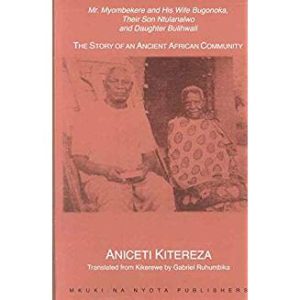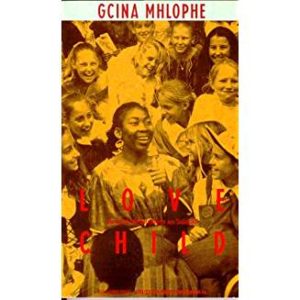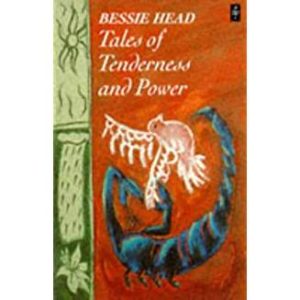African Traditional Life
How did rural life in African societies look like? What was the religion of traditional African societies, and what rites did they have? How was everyday life in an African family? Who educated the children, what did they learn and were there any schools? The answers to many of these questions can be found in some of the autobiographies, but they can also be found in stories that tell of old African tribal life. We learn of witchcraft in Zimbabwe, of hunting hippopotami and making rain in Tanzania, and of family life in South Africa.

One of the most complete sources of information about rural African life is the novel of Tanzanian writer Aniceti Kitereza, a grandchild of an African kingdom. He has contributed the unique saga, “Mr. Myombekere and His Wife Bugonoka, Their Son Ntulanalwo and Daughter Bulihwali: The Story of an Ancient African Community”, to African literature. He tells of life in an old African community, long before the European powers changed the continent.

Gcina Mhlophe has collected stories from the Xhosa and Zulu tribes in South Africa.She shares her personal journey through the social and political landscapes of the 1980s, with their struggle and transformation, in her anthology, “Love Child”.
Bessie Head is one of the first female voices of black African literature, celebrated for her psychological novels. She was active in the anti-apartheid movement and imprisoned several times.
 After emigrating to Zimbabwe, she began to portray rural life in her short stories, collected as “Tales of Tenderness and Power”
After emigrating to Zimbabwe, she began to portray rural life in her short stories, collected as “Tales of Tenderness and Power”
Novels and Autobiographies
African Traditional Life
Amkoullel, A Fula Child
Autobiographies
Aké. The Years of Childhood
Dreams in a Time of War
Facing the Lion: Growing Up Maasai on the African Savanna
Long Walk to Freedom
My Story
Unbowed: A Memoir
Coming of Age
Mandela’s Ego
Miriam's Song
Nervous Conditions
Purple Hibiscus
The Mending Season
Emigration
Lessons in Humanity
A Long Way Gone. Memoirs of a boy soldier
Child Soldier: Fighting for my life
I die, but my Memory lives on
Praise Song
Sozaboy
Stories about Friendship



